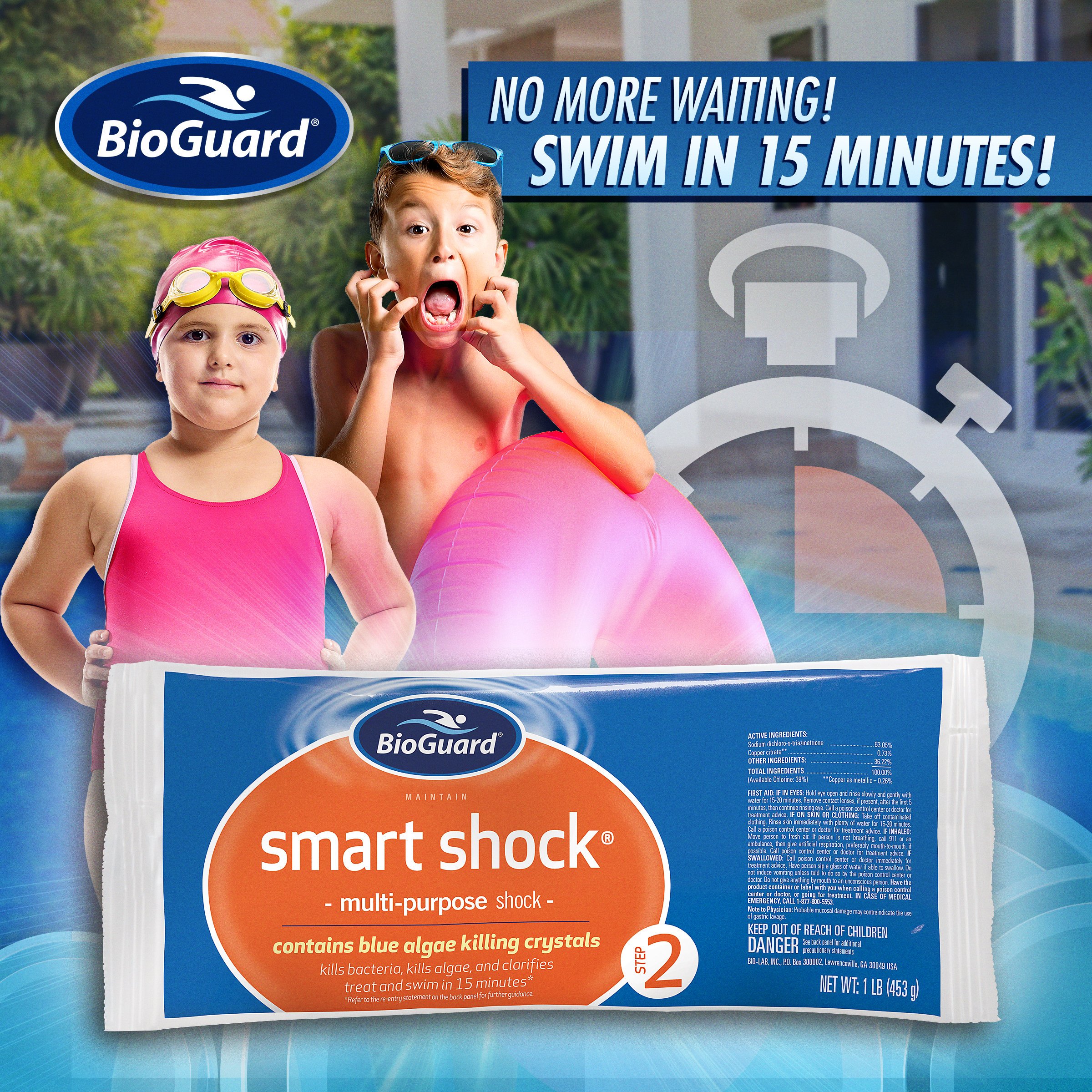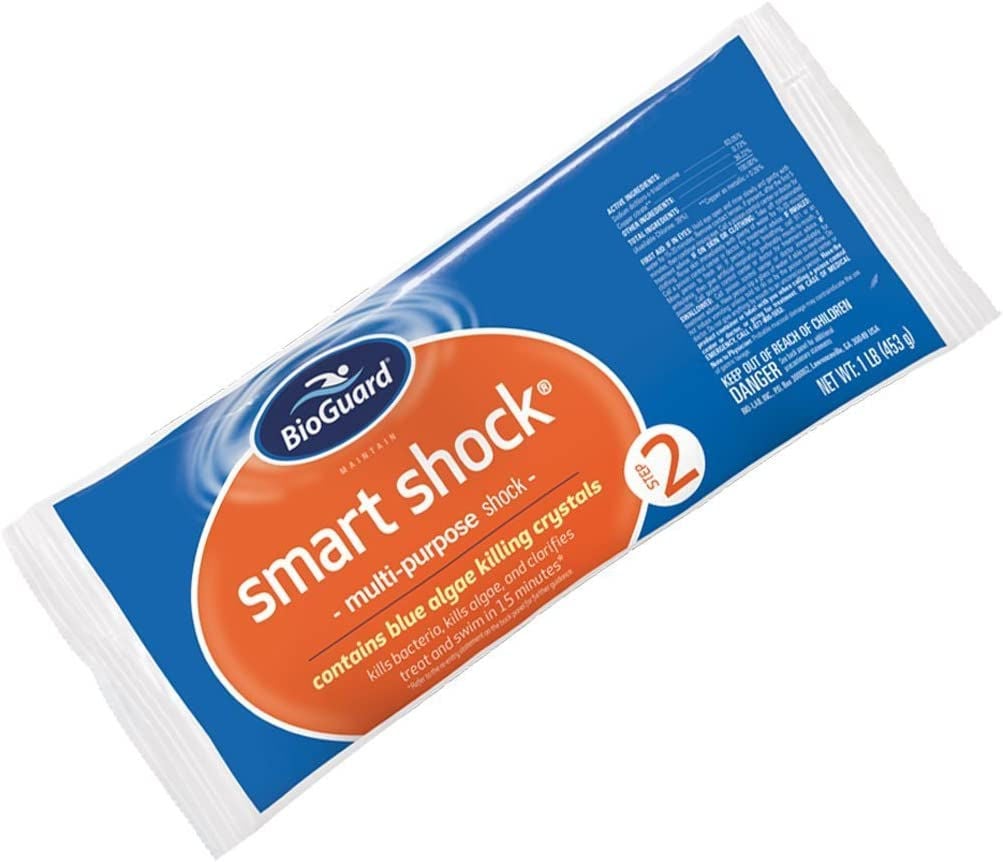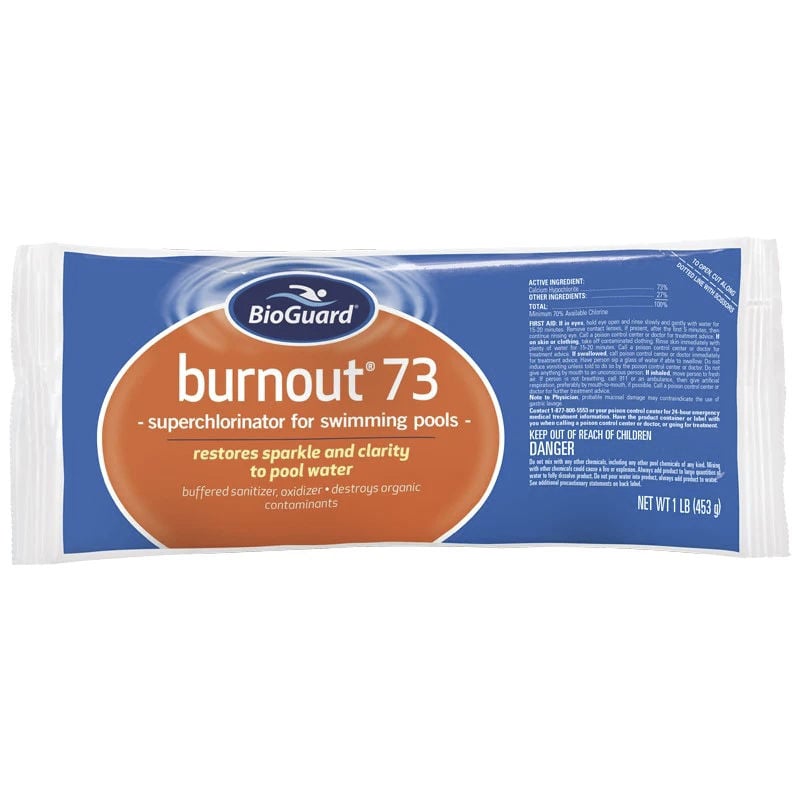
Shocking your pool is part of your regular pool maintenance program. It's the best way to remove organic contaminants from your pool. These contaminants may come from swimmers and the environment. This can include suntan lotions, body oils, urine, hair spray, perspiration, pet dander, and other contaminants.
In this article, we uncover the importance of shock in your pool and explain how to use it properly.
BioGuard Smart Shock is Part of Your 3-Step Pool Care System
In the three-step program, you follow these steps for proper pool care:
- Sanitize your pool to clean the water. This helps you control bacteria and control algae.
- Shock your pool to remove contaminants. Shock helps you kill bacteria and algae. It clarifies your water and buffers your pH so you have brilliantly clear water with no cloudy residue.
- Prevent and kill algae.
Shock Regularly
Pool shock isn't just for when your water has a problem. Shock chemically destroys organic contaminants, removes combined chlorine, and restores water clarity.
The Value of Shocking Your Pool Water
Pool shocks perform a vital function in pool care by immediately raising chlorine levels, removing contaminants, and clearing up cloudy water.
Watch this video to learn more:
Our Favorite Pool Shock
Smart Shock®
- BioGuard’s best for killing bacteria, oxidizing, buffer and clarify your water
- Contains blue algae killing crystals
- Treat and swim in as soon as 15 minutes
Burnout® 73
Calcium Hypochlorite
- Superchlorinator for swimming pools
- Suitable for use in all pool types
- Restores sparkle and clarity to pool water
When to Use Shock
You want to shock your pool water weekly during the summer season. This keeps your pool crystal clear and sanitized for healthy swimming.
When you shock your pool, it quickly raises chlorine levels so that you can get rid of organic contaminants.
If you have cloudy water or high bather loads, shock your pool. For example, if you have a pool party, shock it after everyone leaves. You also want to shock your pool after heavy rain.
It's also a good idea to shock if you smell chlorine in the pool or if swimmers have irritated eyes. When you notice the smell of chlorine, this means you have a build-up of chloramines, and your shock isn't working.
What is the Best Time of Day to Shock the Pool?
You want to shock your pool in the evening after you've removed debris from your pool. This way, the UV rays from the sun won't degrade your chlorine before it has a chance to work.
Shock on a Regular Basis
Do be sure and create a regular pool maintenance schedule that includes pool shock. Come see us to pick up yours and let us help you have a clean and healthy pool all summer long!



